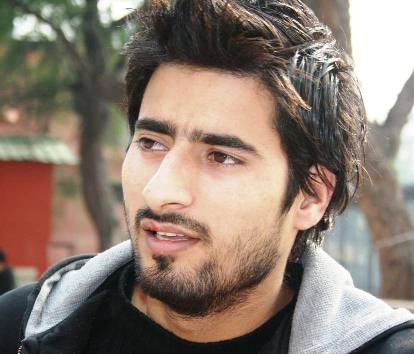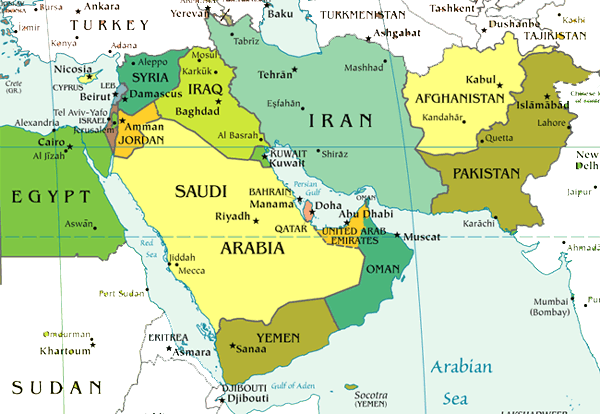By Iqbal Sonaullah
Almost none among the Middle East countries have an independent political identity: all of them gain a semblance of recognition by their alliances to either Saudi Arabia or Iran. So the relations between countries of the region are essentially defined by the disposition of relationship shared by the two ideological rivals. This on-going battle of identity has been shaped with an unnecessarily exaggerated mannerism of religious difference. This difference – between Saudi Arabia and Iran – however, isn’t much about the religion; it, more so, is motivated by a broader political impulse.
To a great extent, Middle East has lost its collective Muslim identity. And today, there is no Muslim in Middle East: You are a Sunni, or a Shia, or a Kurd, or God-knows-what!
For decades this individualistic identity has been determining one’s allegiance and sincerity towards a particular cause or a movement in the Middle East. Four years ago, the Arab Spring provided a chance to entire Middle East to reshape their identity; unfortunately, the intervention of regional powers, and the subsequent manipulation of political happenings, instead of reshaping the identity of Middle East, perpetuated the already existing divide. And with every passing day, the cause of stability, accountability and collective development goes further into an abyss of sufferings.
Now, with West’s change of policies towards Iran, politics seems to be reshaping in Middle East. Saudi Arabian autocrats who have lived on the mercy of American support had probably not imagined the situation to change in such a way. Saudi Arabia has historically enjoyed benefits of alliance with West while Iran suffered under economic sanctions imposed upon it by the international community. Despite all these sanctions, unlike Saudi Arabia, Iran remains a country with sufficient indigenous military capability in the region after Israel. Today’s almost-sudden change of political scene in the region has dragged Saudi Arabia into a bewildering array of disbelief thus. In the past, Saudi Arabia – along with Israel – have expressed their scepticism and severely opposed the nuclear deal demonstrating that it will “destabilize” the region. It worked in the past. Since American President this time seems to be absolutely firm and motivated that this deal should happen, it has prompted the Saudi political-apparatus to rethink about its foreign policy. With not many options available, Saudi Arabia yet again turned towards Muslim Brotherhood and HAMAS to reconcile.
However, not so long ago, Muslim Brotherhood was declared as a ‘terrorist’ organization by Saudi Arabia essentially because Brotherhood refused to accept political diktats from Saudi Arabia and tried to establish cordial relationship with Iran, ignoring all constructed sectorial divides. Then, does religious identity really matter in this battle of political power?
Since the 2011 Spring, the battle between Saudi Arabia and Iran has remained confined to defending their allies to maintain power equilibrium. This political debacle – a struggle to hold dominant position in the region – has always put the two countries at the ends of the spectrum. Either of the two sides strives to achieve a hegemonic-identity to be acknowledged as the leader of the region. But with every passing day, the more there are talks of peace and stability the more the divide between them deepens.
Among the essential issues used by both Saudi Arabia and Iran to define their political loyalty is the Palestinian cause. In their own way, both the countries have been supporting HAMAS. But neither Saudi Arabia, it appears, nor Iran support HAMAS because of their religious identity. This support is an outcome of the political and strategic doctrine of both the countries.
Iran, for example, sees Israel as a greater threat than any other country in the region it chooses to fight its own strategic war through HAMAS. This helps Iran at least in two ways: one, to some extent, they aim to neutralise their immediate enemy which they see in Israel, and second by supporting HAMAS they gain popularity in the Muslim dominated region that helps them to maintain balance of power equation despite being a minority.
Yet another changing dimension of fluctuating identity in contemporary Mid-Eastern politics is Saudi Arabia’s recent initiative to engage in talks with Egyptian Brotherhood. This hasn’t gone well with Al-Sisi, Egypt’s dictator, who, in 2013, ousted Brotherhood’s democratically elected President Dr Mohamed Morsi and subsequently emerged to power at the behest of Saudi monarchy. Back then, Sisi was more beneficial to Saudi Arabia than Brotherhood given Brotherhood’s foreign policy. Now with changing political scenario, relations with Brotherhood are crucial hence the change in the foreign policy of Saudi Arabia is inevitable.
After the emergence of ISIS, the religio-political identity in the Middle East has saturated further. Saudi Arabia, UAE, Jordan, Bahrain Syria, Iraq, Iran are all bombing the group. Apparently ISIS is a Sunni Muslim organization; so the ‘wired logic’ behind their killings of Shia Muslims may be understood. But on their part, ISIS is also retaliating without sectorial disparity. Take for example the recent attack in a mosque in Saudi Arabia. So in such a changing political situation, what actually defines ‘Muslims’ in Middle East?
A further glaring anecdote explaining the crisis situation is the alliance of Sunni Kurds and Shia militias against the ISIS in Tikrit. Such a chaotic political situation – and the resultant identity crisis – in the region is an outcome of the political battle fought by Saudi Arabia and Iran by exploiting religious identity and, thereby, trying to establish a client regime in other countries of the region. Take, for example, the crisis in Iraq, Syria, Yemen and Bahrain. Until now, Muslims in Middle East have failed to maintain balance between their political affiliation and their religious identity. In a battle between two regional powers, almost every other country in the region has been perpetually affected; even Muslim societies world over suffered a great deal. With such a muddled political situation, the Muslims in the Middle East – particularly in Iran and Saudi Arabia – remain a threat to their own identity more than the identity of any other nation or group.

Author is a freelance journalist. He studies Middle East at Jamia Millia Islamia, New Delhi. He can be reached at [email protected].















